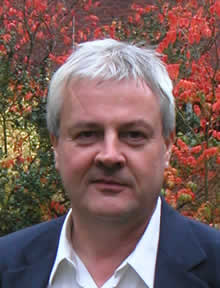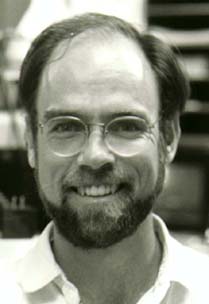Keynote Speakers: John Dupre and Andrew McCulloch

Keynote Speakers: John Dupre and Andrew McCulloch |
PSB 2008

|
 |
John Dupre Director of Egenis, Professor of Philosophy of Science University of Exeter |
Abstract:
Although philosophers of biology have spent considerable effort problematizing
such key biological concepts as the gene and the species, they have generally treated the
organism as fairly unproblematic. This talk aims to end this complacency. Recent work
on symbiosis, especially with regard to the typical functioning of microbes in multispecies
communities (biofilms) and in mutualistic relation with the more charismatic eukaryotes that
have always attracted more than their fair share of attention, suggests that the lines we draw
round cooperating groups of cells to demarcate organisms are, if not arbitrary, at least
underdetermined. Or so I shall argue.
Biography:
John Dupre is a philosopher of biology who has held posts
at Oxford, Stanford (for fourteen years), and Birkbeck
College, London. In 2006 he held the Spinoza Visiting
Professorship at the University of Amsterdam. He is
currently Professor of Philosophy at the University of
Exeter and Director of the ESRC Centre for Genomics in
Society (Egenis). His publications include The Disorder of
Things (Harvard, 1993); Human Nature and the Limits of
Science (Oxford, 2001); Humans and Other Animals (Oxford,
2002): and Darwin's Legacy: What Evolution Means Today
(Oxford, 2003).
 |
Andrew McCulloch Professor and Chair, Department of Bioengineering University of California San Diego |
Abstract:
Systems biology aims to achieve functional integration of interacting molecular
components in complex biological systems, while multi-scale modeling is focused on
structural integration across physical scales of biological organization from molecule
to organism. While systems biologist prefer genetically tractable model organisms with
which to build comprehensive functionally integrated systems models, the goal of many
researchers working on multi-scale modeling of the heart is to gain insights into mechanisms
of human heart disease. We explore the feasibility of bridging these complementary but distinct
approaches.
We use drosophila as a model organism for studying cardiac hypoxia tolerance. We developed a genome-scale model of drosophila central metabolism by integrating high-throughput phenotypic, metabolomic and expression profile measurement. We have also reconstructed systems models of networks responsible for metabolic and neurohormonal regulation of excitation-contraction coupling mechanisms in cardiac myocytes. These models form a starting point for continuum biophysical models of cell, tissue and organ scale biotransport, bioelectrical and biomechanical processes. The organ system scale is represented by lumped parameter models of the circulation. We illustrate this combination of systems and multi-scale modeling approaches with examples from recent research on arrhythmia mechanisms in genetic disease and the effects of external interventions such as external pacing on ventricular function in the failing heart in vivo.
http://cmrg.ucsd.eduBiography:
Andrew McCulloch is Professor and Chair of Bioengineering at the University of California San Diego, where he joined the faculty in 1987. He is member of the UCSD/Salk Institute for Molecular Medicine, the California Institute for Telecommunications and Information Technology, a Senior Fellow of the San Diego Supercomputer Center, and a member of the Whitaker Institute for Biomedical Engineering, and the UCSD Center for Research on Biological Systems.
Dr. McCulloch was educated at the University of Auckland, New Zealand in Engineering Science and Physiology receiving his Ph.D. in 1986. Dr. McCulloch was an NSF Presidential Young Investigator and is a Fellow of the American Institute for Medical and Biological Engineering. He has served on the Board of Directors of the Bio-Medical Engineering Society, and is currently Associate Editor of the Journal of Biomechanical Engineering and co-Editor-in-Chief of Drug Discovery Today: Disease Models. He is on the editorial boards of the American Journal of Physiology: Heart and Circulatory Physiology and Computer Methods in Biomechanics and Biomedical Engineering. In the past year he has given the Konrad Witzig Memorial Lecture and the Donald Wassenberg Memorial Lecture.
Dr. McCulloch’s lab uses experimental and computational models to investigate the relationships between the cellular and extracellular structure of cardiac muscle and the electrical and mechanical function of the whole heart during ventricular remodeling, and arrhythmia. Dr. McCulloch is a PI on the NCRR-supported National Biomedical Computation Resource, and has grants from the NHLBI, NSF and DOD on cardiac myocyte tissue engineering, the biomechanics of ventricular remodeling, signaling pathways in cardiac hypertrophy and failure, cardiac electromechanical interactions, and computational cardiac biology. Dr. McCulloch co-founded Insilicomed in 2000.
| Back to the main PSB page | Updated: July 27, 2007 |